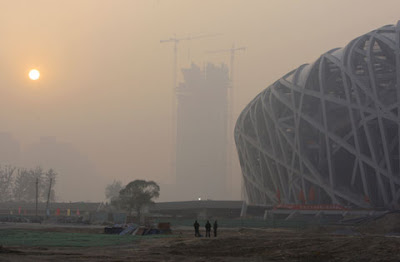
Pro Nationals were last weekend in Portland, Ore and I am grateful to have turned in a solid 9th place finish. I was little more than 30 seconds outside a top 5 finish and with better run fitness, could have made it a lot closer to the podium. I had a good swim and made the lead pack on the bike. A break away of two (Matty Reed and Matt Chrabot) got away on the first lap and our group, despite having decent fire power, was unable to reel them in. In fact, we lost a bit of time to them over the course of the 8-lap 40K bike. My cassette came loose during the race and caused ghost shifting problems and prevented me from getting into my biggest three gears. I was supposed to make something happen on the bike, but this severely limited my ability to reach top-end speed, so I settled into the dysfunctional pack, did a decent amount of work, and set my sites on a solid first run in over a month. In a repeat of FISU World University Games, Kevin ran past me from one bike pack back in the final lap to beat me by one spot. Quite distinct from FISU, Ethan had one heck of a race to turn in a podium finish. All in all, it was a solid day for "Les Stupide Americane."
I went dark after the Olympics as I dealt with a number of health issues that caused quite a bit of frustration and threatened to keep me out of Pro Nationals. In fact, I was undecided whether I would race and if I would run during the race up and until the day before the race. First, before I left the Springs, I had blood drawn for a routine blood test. Once I got back to Davis, I got a call from the director of the USOC Physiology lab who apparently had been looking for me quite frantically in the Springs. It turns out I had stage-three iron-deficiency anemia which causes fatigue, weakness and inhibits recovery. As the condition worsens, the length of time to recovery grows longer. It was important I address the matter immediately by taking iron supplements (She recommended Feosol because each batch is tested and certified to be free of WADA-banned substances) and eating more red meat. When I told her I was having trouble sleeping, too, she recommended I eat ice cream with chocolate syrup just before bed. So I went on a diet of burgers and ice cream--on the advice of the USOC! I started to feel better after about 2-3 weeks of supplementation.
But just as I was gaining energy and strength back, I started to get a pain in my hip flexor when I ran. After running through the pain for about a week (It was starting to hurt to walk even), I took three days off running. Then I tried running again and it still hurt. I subsequently stopped running until Portland on the advice of Dr. Sam Dixit at the UC Berkeley Tang Center (he's great). His guess, which couldn't be confirmed without an MRI, was that I had a stress reaction--a precursor to a stress fracture though it is every bit as serious, treatment is the same, and recovery can take just as long as a stress fracture. Given these set backs, I thought about ending the season all together, but I wanted to see how I could do against the best triathletes in the U.S. I'm glad I decided to race Portland.
Now I get to enjoy a few weeks of training break, then it will be back to base training--with lots of focus on running--to prepare for next year. A new quadrennium begins next year, which means I have 4 years to make my dream of an Olympic berth come true.








